For anyone out there involved in the excitement of metal detecting, you’ll know just how engaging it can all be. Metal detecting is a hugely exciting experience and something that we can all enjoy if we put in the time and effort.
However, one thing that many newbies who are fresh to metal detecting as a hobby don’t appreciate is how to clean metal detecting finds.
A metal detecting find can be a great thing to locate. It gives you confidence that you know the industry and that you can appreciate the challenges involved.
However, one thing you will find with metal detecting is that cleaning up and caring for your products can be tougher than expected. Before you go ahead and wipe down that find with some spirit and a microfibre cloth, though, read on!
How to Clean Metal Detecting Finds
We’re going to talk briefly about the importance of cleaning your metal detecting finds. We’ll also try and break down some of the most crucial information regarding metal detecting cleaning. How do you go about learning how to clean metal detecting finds?
And why does it matter so much? What can it do for you if you are looking for an easy way to clean up your finds. It might just help you to turn around the find that you have discovered and give it that good-as-new look that you were hoping for. Like anything else, though, the challenge that comes from cleaning finds comes from understanding the science.
Digging Deeper: How Metal Detectors Work
Why do I need to clean metal detecting finds?
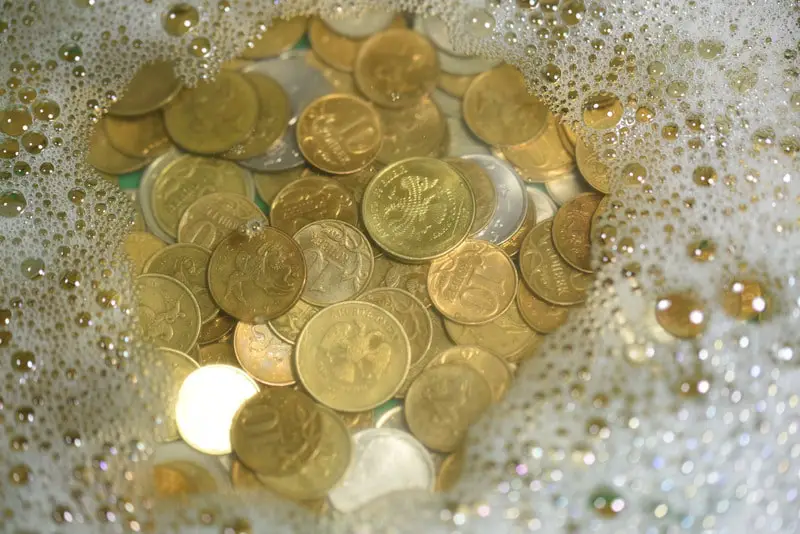
Of course, the first question that you might have not to start with a how…it might rather start with a why?
And why indeed. Knowing why your metal detecting finds have to be cleaned is the most important part of taking the next step. Generally, any metal that has been lying underneath the ground is likely to be quite dirty. It’s just a fact. It’s been underneath the ground for ages. Not to mention the fact that it is quite literally encased in the dirt, it’s also surrounded by reactive materials.
In the ground that we walk on and the earth, you are digging through, all manner of minerals exist. These can have numerous different impacts with regard to metal. It could have a corrosive impact on some, and it could have no impact on others. Therefore, you need to understand that the reason why you need to clean your finds comes down to conditioning.
This will mean that if you want to keep or even sell on those finds, they need to be in good condition. Handing it over to a vendor with it still half-dirty and tarnished is going to really hurt the price that you get back in return.
Aside from making it harder for you to make a few bucks extra, it will also limit the quality of what you find. Why, then, do you need to think about learning how to clean metal detecting finds?
Lesser metals won’t last
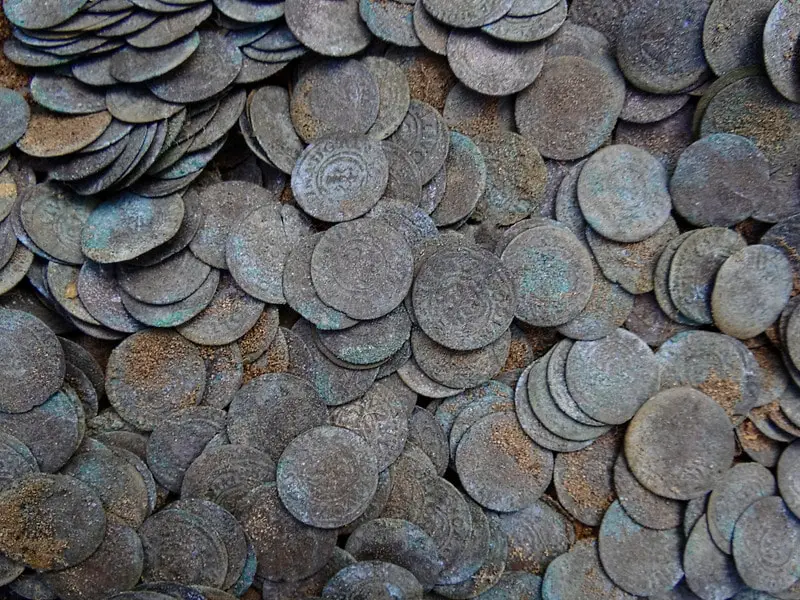
So, the main problem you are likely to find is that unless you are dealing with gold it will likely tarnish. Lesser metals will begin to become covered in what is known as Verdigris. This is what gives your finds that horrible green-looking complexion.
It’s quite literally a reaction to the fact it’s been encased in soil, dirt, and grime for the longest time. Naturally, that is something you might want to put some time into cleaning up and solving.
Lesser metals will begin to lose their quality. It’s going to actually sometimes make it harder for you to even work out what you have found. The oxidation that takes place to metals that are encased in the ground can become quite horrible.
With other metals, though, it’s not going to be the Verdigris that you need to worry about; it’s rust. When something starts to rust, you can find that it’s going to be very hard to make out what it actually is. In fact, most of the time you can find that items taken from long-term submergence in the ground will be almost entirely featureless.
The patina is either worn off entirely or it is hidden behind all of the build-ups. This is a major problem, as it can ruin the quality of what you have found. The main thing that you should be looking to do, then, is finding out some way to identify what you have actually found in the first place.
What should I not clean that I find when metal detecting?
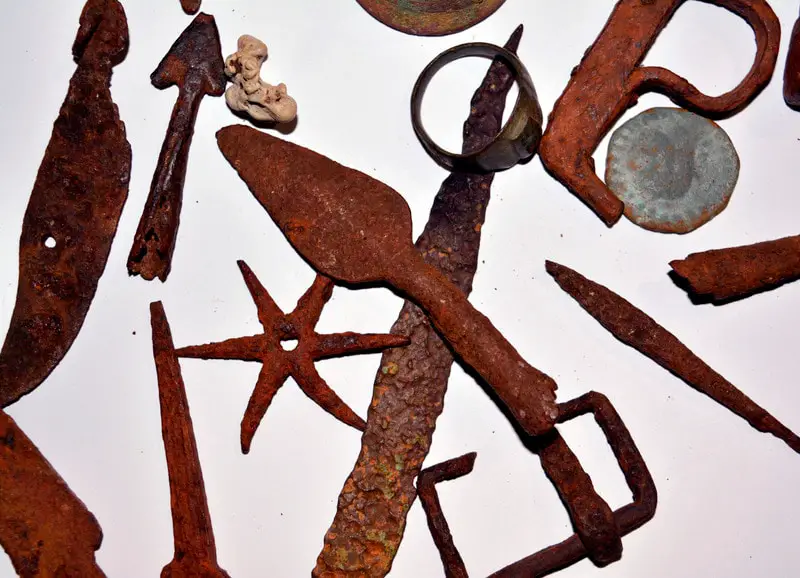
However, we do think before we go any further that it is important to mention that some of your finds need not be cleaned. If you were to find something like an old artifact – something you think is historical – then avoid cleaning it. Instead, you should look to get in touch with someone who knows about these things.
They can then take a look at what you are trying to have cleaned and use the right tools to get into the key sections. Professional expertise should be sought out if you are finding anything including:
- Long-term currency, such as coins from a previous era – or simply coins you don’t recognize.
- Jewelry, which should never be touched and left in the same condition that you had found it.
- The artifact should be left alone, too; they should be kept in the condition that you located it within.
- Anything that you think might be of historical value, including any kind of text stored in metal.
If you find anything in the above four categories, then it would be wise to contact some form of antiques dealer or archaeologist. You can even send them a photo of what you have found and see what they think.
If nothing else, you could go and speak to a local university expert. You should be able to find someone who can help you to work out what you have found – and what it’s worth, naturally.
Digging Deeper: How Deep Can Metal Detectors Detect Coins?
What should I clean, then?
Since we’ve mentioned that you shouldn’t clean some things, we think it’s important to cover what you should try and clean. Typically, if you find something in the jewelry section that you think/know isn’t classical, then clean it up.
Finding a modern watch or something clearly built within the last few decades is worth just cleaning up. These are usually items that you can tidy up and clean without losing their historical significance. However, going about cleaning some objects can be quite a nightmare. Here are some suggestions on how to go about cleaning some important objects.
These are arguably some of the most effective substances that you could use to clean up some of the items you might find. Please note, though, that one thing you should always do is make sure you’ve read into each substance for your chosen item.
For example, don’t just try it because we have listed it below. Read into what olive oil could do to whatever you have found, for example. Always take the time to look closely at what you have found, and what it could mean. This will more than likely maximize your results moving forward.
Baking soda

The first and most effective place to start when it comes to cleaning your metal detecting finds would be baking soda. Baking soda works extremely well because it can get right into the product and wipe it off.
It’s especially useful for many kinds of products that you will find when metal finding. Why? Because baking soda excels a getting rid of blackened areas on the metal. It can also make a fine job of lifting up any kind of tarnishing that has taken place over time.
Baking soda is your best friend when it comes to cleaning up most silver items, too. It would work well. you just need some hot water, some baking soda, and a toothbrush. Scrub with the mixture, let it sit for a while, and wait to see the sparkling results. Trust us, it’s usually the best place to begin for most metal finds!
Water
A good starting point for many metal detecting finds is some basic distilled water. All that you need to do is soak the items that you find in this kind of water substance for a few days. It will take a few days, though, so don’t expect to wake up and see some amazing results.
You should try and give them plenty of scrubbing with a washing up liquid solution, too. A brush like a toothbrush or a nail brush should be a good place to get you into all of the little nooks and crannies that will need to be emptied out. Though water is not always going to work, it’s typically the first place we would recommend that you turn to if you have already tried baking soda.
What, then, would be a worthwhile solution to try out if you are looking for something a bit more potent?
Olive oil

We mentioned olive oil above, and it’s definitely one that you should look to try out. Olive oil is tremendous for cleaning most products in the meatal industry. Simply put your metal finds into the olive oil and let us clean up the coins naturally. Oil is very light and gentle, so it’s not likely to any kind of lasting damage.
However, please note that using olive oil is a long-term solution. It’s not going to make a difference overnight. If you are trying to clean up a large coin collection by using olive oil, be patient.
It could take weeks – even months – for the full collection to get cleaned up as you would have wanted. However, for coin cleaning, in particular, olive oil might just be the best choice that you can use.
It’s probably the most likely substance to leave your coins clear, clean, and damage-free.
Lemon juice
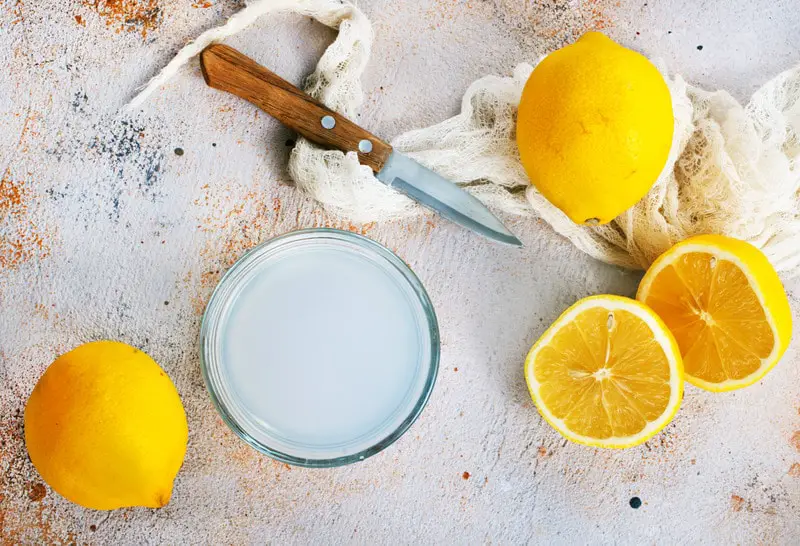
Another good place to start for a clean way to get items such as copper or bras to clean up is to use some lemon juice. Lemon juice is absolutely fantastic at being able to get the garbage off of your items. Lemon juice mixed in with some water will help to make sure that you can get a very strong substance that cleans without much issue.
However, we recommend that you do this quite briefly. The intensity of the lemon juice can become corrosive and actually damage the face of the product. If you do this, though, it should give you a way to get the coin cleared up without much issue. It might, though, have some impact on the color – it’s likely to not be identical to the original due to the years of fading and damage.
White vinegar

Though it can be quite tough on the old nostrils, white vinegar is a tremendous cleaning product. If you decide to put some white vinegar to use, you should find that it lifts up most if not all of the damage that was done previously. We recommend that you try this out if you are looking for something that can really lift the damage to the metal and ensure that it looks good.
This is mostly useful for those who are going to be working with silver and/or gold. Silver and gold react well to white vinegar and should come up looking bright and shiny in the morning. You just need to give it some time and plenty of vinegar to help make sure that it’s strong enough. If you make it potent enough, this should lift all but the most specific of stains without any issues.
Coca-Cola
Another good starting place for most general metal detecting cleaning is to use mild acids. Acids that can work around the object and break off debris is going to be very useful. Start off by taking the metal object(s) that you have found and soak them.
You should do this in a powerful substance, something that has yet to be diluted. Something like white vinegar or even good old Coca-Cola should make a fine starting place.
However, please note that this will not work for every metal. While it should clean just about any metal, it can leave many items (such as copper and/or nickel) items looking almost orange in their color. So, keep that in mind before you decide to just dip your latest find into some acid of sort.
Acidic products like vinegar, though, can work extremely well for cleaning up many silver and silver-based finds.
What other methods could I try?
Of course, not every product that you find out in the wild is going to be improved by using such features. Some products – especially properly old stuff – will need a lot more work. One of the most effective ways to clean up metal by using a process as opposed to a product, then, is going to be to start using electrolysis.
Electrolysis has become hugely popular among metal detecting communities. If you use it right, then it can get your coins looking sparkly and fantastic in no time. Electrolysis works well because it sends an electric current through the solution, which then means that the metal object (negative) is competing against the (positive) earth metal, such as carbon.
This works well because it will more or less clean up any metal item without much work or time passing. However, building up a solution for carrying out electrolysis is confusing, time-consuming, and likely to be more than a bit expensive!
What should I do with my find?
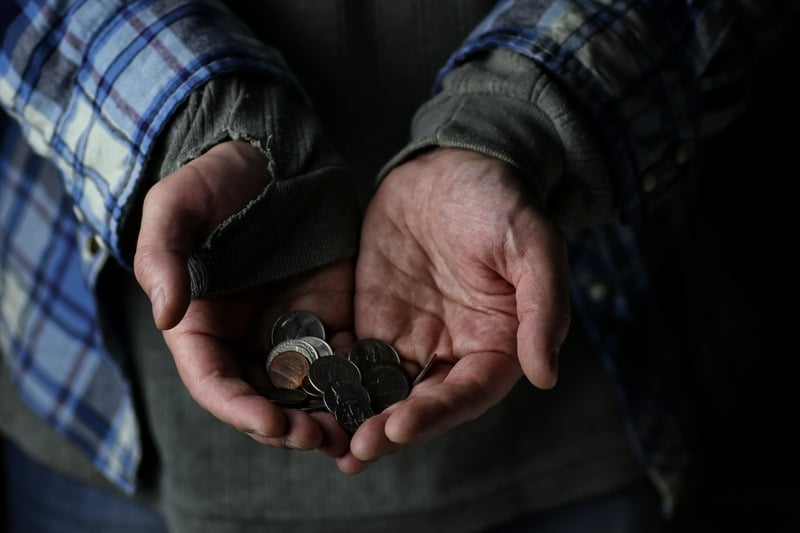
We would even recommend that you clean up items that you know are scrap. There are enough scrap vendors in the world that you could trade them the scrap metal and get a few pennies back for your time.
Always try and make sure that you consider recycling, too. If you cannot find someone who will take on the product, having it recycled is a very wise decision. With so much to find out about metal detecting, though, we recommend speaking to an expert if you are ever unsure.
Think you’ve found something special? Then don’t clean it just yet. Take it for appraisal, and you might get the most wonderful of surprises!
Conclusion – How to Clean Metal Detecting Finds
So now you have a good idea about how to clean your metal detecting finds. Before cleaning anything that you may find metal detecting make sure you know what you are cleaning before doing so. This will ensure that you use the proper cleaning technique so you won’t ruin the find. If you are not sure what it is that you have found it’s a good idea to do a search on the internet and ask questions in forums to get an answer to what you have found.
I hope you got some useful information from this article and until next time Happy Treasure Hunting!
